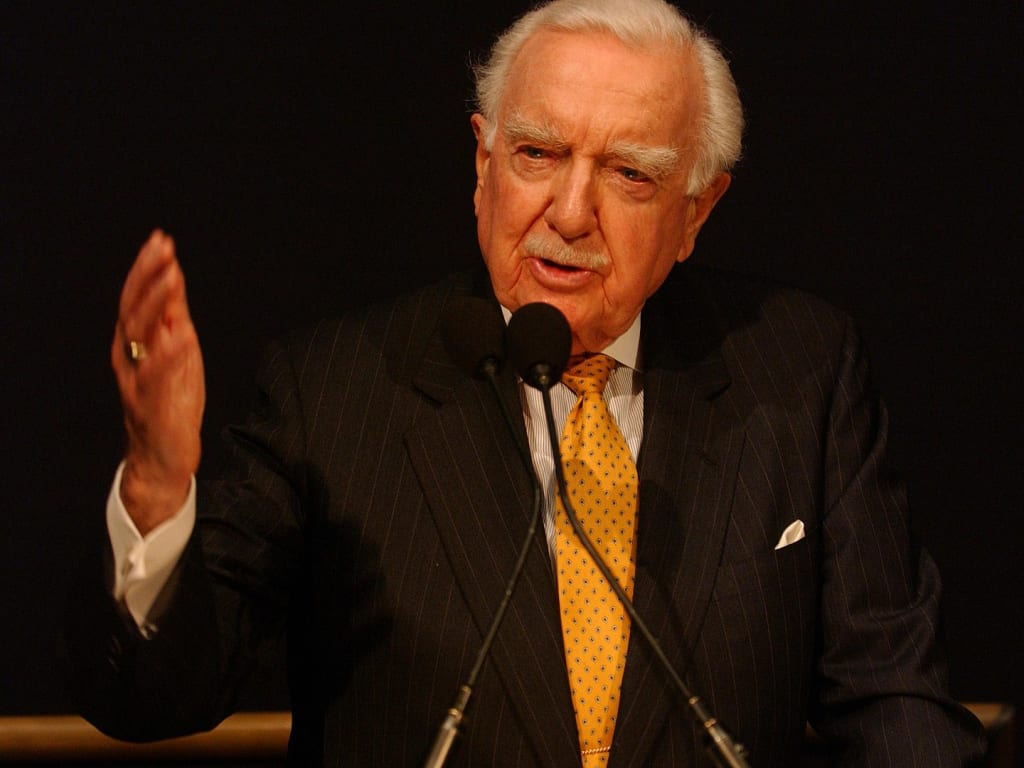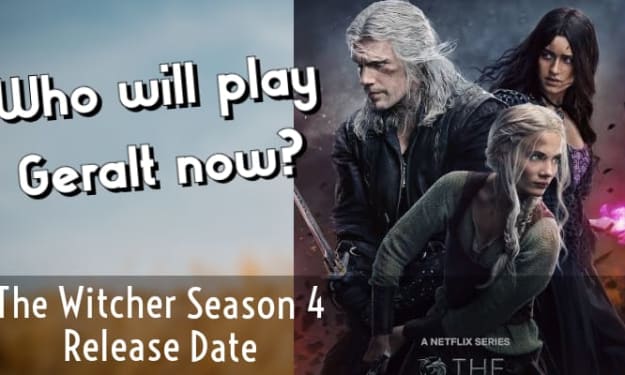War Films: 5 That Point Up Its Madness
My list started at five and grew...

As Walter Cronkite reputedly said 'War is a form of madness'.
This is my choice of films that I consider to be the most illuminating about the madness and realities of war together with its consequences for the people who have to do the actual fighting and dying - or be closely involved.
I have never served in the military and I am certainly not a pacifist.
The first film may be a bit of a surprise.
'Arms and the Man'
The absurdity of a romantic notion of war
Confession: I have never seen this film. And I'll bet that you haven't, either.
But I studied the play in school for my English Literature 'O' level exam.
Written by George Bernard Shaw in 1890, it is a light comedy set in that saddest of regions, the Balkans. It features a Swiss mercenary and a dashing, idiotic Serbian lancer, Sergius. In between them is a woman. Her name is Raina. So far, that is all from my memory after more than half a century.
To my disappointment I had to look up the name of the Swiss mercenary, although I knew he was a captain and that his name ended with 'li'.
Bluntschli.
Shaw uses his sense of the ridiculous to make us laugh and to attack the myth of the 'glory of war' Although I am an ardent supporter of Ukraine in the current conflict, their media people are using the word 'glory' in a way that pains me.
I've seen plenty of war memorials in the UK with the phrase 'In memory of the glorious dead'. I think that after the First World War, this phrase fell into disuse. In the Second World War, media had brought home to most people the horrors of war, and the fact there there was no real 'glory' in it, except for those like Douglas MacArthur who sought fame.
The play has been produced many times and has featured actors such as Marlon Brando and Carroll Baker. There have been at least two film productions.
It is timeless.
And if you don't want to watch the film you can get a free ebook download from Project Gutenberg.
Bulgarians of really good standing - people in OUR position - wash their hands nearly every day. But I appreciate your delicacy. You may take my hand.
'Platoon'
A casual approach to death
This was the first of Oliver Stone's trilogy of Vietnam films. He served there in the infantry and Platoon was the first Hollywood film to be written and directed by a veteran of the Vietnam War. According to the DVD's commentary he wrote it to counter the gung-ho glory of John Wayne's Green Berets.
Of course, gung-ho glory films are necessary in war to encourage recruitment, at least until conscription takes hold. I understand that.
In 2019, the film was selected for preservation in the United States National Film Registry by the Library of Congress as being "culturally, historically, or aesthetically significant". (Wikipedia)
Holy shit, did you see that fuckin' head come apart, man?
Good Morning Vietnam!
Moral ambiguity or morale boosting or… ?
From a film-making point of view, this is very special. The film was triggered by the real US Forces radio DJ Adrian Cronauer's screenplay. But many of the events in the film did not actually take place, and Cronauer is not accurately portrayed. Most of DJ Cronauer's broadcasts were improvised by Robin Williams, relying on his comic genius to portray the irreverent DJ.
Nevertheless, the film is a powerful piece of cinema despite leaning a long way to the fictional end of the spectrum.
Moral ambiguity or morale boosting or…? It's a great piece of entertainment but sadly the sub-plot about Cronauer's friendship with a VC is a complete invention. I couldn't make up my mind about what the lesson was for me from this film.
The music sound track is highly evocative and was certified platinum in the USA. There is really only one quote for me, and that's the title itself, but here's another:
"How can you fight a war in this shit? I don't know where they are, I don't even know where I am. I can't see dick. Like hunting with Ray Charles."
Born on the Fourth of July
The unappreciated and embarrassing
I'm not sure whether the way the USA in general treated its Vietnam vets was due to shame about the way the war ended so ignominiously for the country or because of other uncomfortable memories such as the Mỹ Lai massacre.
This was the second of Oliver Stone's Vietnam trilogy and it's based on the autobiography of a paralysed vet, Ron Kovic, his time in Vietnam and the much more painful aftermath as he becomes an anti-war activist.
I'm not a big fan of Tom Cruise, but his role as Kovic in the film is superbly played.
I wanted people to understand. I wanted to share with them as nakedly and openly and intimately as possible what I had gone through, what I had endured. I wanted them to know what it really meant to be in a war - to be shot and wounded, to be fighting for my life on the intensive care ward - not the myth we had grown up believing. - Ron Kovic
The Deer Hunter
Random violence
Whenever I see that title, I think of three friends drinking beer and hear the theme tune, Cavatina.
And Russian Roulette.
In his review, Roger Ebert defended the artistic license of Russian roulette, arguing "it is the organizing symbol of the film: Anything you can believe about the game, about its deliberately random violence, about how it touches the sanity of men forced to play it, will apply to the war as a whole. It is a brilliant symbol because, in the context of this story, it makes any ideological statement about the war superfluous." - Wikipedia
There are others who argue that the film is unbalanced in its treatment of the NVA and Viet Cong as cruel and inhumane.
Is it really an anti-war film? I'm not absolutely sure, but it's on my list because it portrays another kind of horror.
No film quote comes to mind immediately for me, and I guess that says something about the script.
We gotta play with more bullets…That means we gotta play each other…You gotta listen to me. You wanta stay down here and die?…Go ahead Nickie. It's gonna be all right…Don't worry, in five minutes we're gonna be outa here…It's gonna be all right, Nickie, go ahead. Shoot. Shoot, Nickie.
All Quiet on the Western Front
The physical and mental trauma of war
This is the original anti-war film, from way back in 1930.
Based on the novel by Erich Maria Remarque, a German veteran of World War I, the film illustrates the German soldiers' extreme physical and mental trauma during the war and then the 'other worldly' detachment from civilian life they feel after the war.
There have been several more recent versions and it seems to me that whilst the original is superb, the fact that it is shot in black and white (there was no alternative in 1930) reduces the impact.
But now our country calls! The Fatherland needs leaders!! Personal ambition must be thrown aside in the one great sacrifice for our country! Here is a glorious beginning to your lives! The fields of honor calls you.
Apocalypse now
All aspects
For me, this is the best of the bunch, a brilliant piece of cinema by Francis Ford Coppola.
When I was researching it, I discovered that the screenplay, co-written by Coppola, John Milius and Michael Herr, was loosely based on the 1899 novella Heart of Darkness by Joseph Conrad, with the setting changed from late 19th-century Congo to the Vietnam War. Plus ça change, plus c'est la même chose.
There are three scenes that particularly stick in my mind.
The first is the 9th Cavalry helicopter squadron, playing "Ride of the Valkyries" on loudspeakers, after a dawn napalm strike. Wagner's music just brought Hitler to mind.
The second is immediately after they land and the unforgettable quote 'Surf's up Sir' as Lt. Col. Kilgore (Robert Duvall) talks about the smell of napalm in the morning.
And finally, the desolation of the night time battle as the PBR boat passes upriver through a town at war. All hope seems to be lost. It conveyed raw fear.
In 2000, the film was selected for preservation in the National Film Registry by the U.S. Library of Congress as "culturally, historically or aesthetically significant".
We train young men to drop fire on people, but their commanders won't allow them to write "fuck" on their airplanes because it's obscene!
"I love the smell of napalm in the morning. You know, one time we had a hill bombed, for 12 hours. When it was all over, I walked up. We didn't find one of 'em, not one stinkin' dink body. The smell, you know that gasoline smell, the whole hill. Smelled like … victory.
"I've seen horrors… horrors that you've seen. But you have no right to call me a murderer. You have a right to kill me. You have a right to do that… but you have no right to judge me. It's impossible for words to describe what is necessary to those who do not know what horror means."
Such powerful script-writing. Credit to the writers for putting together such unforgettable words.
Conclusion
I have not included 'Saving Private Ryan'. It's a great film, but to me that film is more about the actual techniques of war. Yes, the secretary ceases to become a pacifist because his Captain is shot, and his slow conversion is well scripted. The realities of war are superbly portrayed, but for me it does not count as an anti-war film as it does not portray its absurdity. But I will concede that the reality itself can be seen as absurd.
There are other films too that I could have added, but these were the ones foremost in my mind.
The saddest point for me is internal conflict. I understand that war is sometimes necessary. I taught my sons how to deal with bullies. But I don't like it.
And when is a war not just a 'special military operation', or assistance to political allies for wider reasons even if they are corrupt? As Phil Ochs wrote about Vietnam and US forces 'training' there in 'Talking Vietnam Blues':
Well training is the word we use
Nice word to have in case we lose
What do you think about such a portfolio of films as being a mandatory part of a school curriculum?
How about poetry, such as Rudyard Kipling's 'Tommy'?
In the poem, a British soldier (Tommy Atkins) describes the poor treatment he receives at home when he is not needed to fight a war (for example, he laments being refused service by a pub owner for being a "redcoat").
He contrasts this with the way he is treated by civilians during warime.
O it's Tommy this, an' Tommy that, an' "Tommy, go away";
But it's "Thank you, Mister Atkins," when the band begins to play
Tommy rejects both sides of this duality, saying that he and his fellow soldiers are neither "thin red 'eroes" nor "blackguards", but just ordinary men.
This was written when the British were fighting a war in Afghanistan (1838–1842).
As a said earlier, plus ça change…
***

About the Creator
James Marinero
I live on a boat and write as I sail slowly around the world. Follow me for a varied story diet: true stories, humor, tech, AI, travel, geopolitics and more. I also write techno thrillers, with six to my name. More of my stories on Medium






Comments
There are no comments for this story
Be the first to respond and start the conversation.